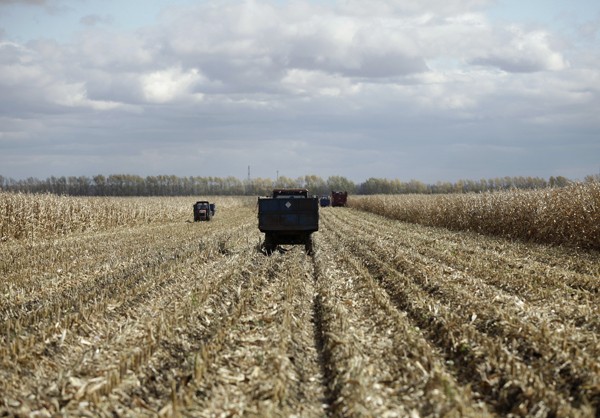The Chinese rural work conference ended on Dec. 23, Tuesday, with the government bent on industrializing China's agricultural landscape by way of innovation and reform.
A statement was released after the two-day conference revealed the government's substantial achievement in rural development this year, including an increase in farming income and the 11th consecutive bumper harvest. These developments will accordingly set the tone for next year's operations.
In contrast to this, the statement also pointed out difficult challenges ahead. In order to achieve a sustainable and stable state for the farming sector, several factors must be resolved, such as the rising costs of agriculture, weakened cultivation, limited land and resources, and lack of fresh water.
Chinese Academy of Social Sciences researcher Li Guoxiang said that the Chinese agricultural sector is confounded with so many barriers--namely, unstable costs, government subsidy, and constraints brought about by limited resources in a demanding environment. Li also said that if these pressing issues are not resolved, there would be no sustainable agriculture.
Zhu Lizhi, an expert from the academy, also said in a statement that in order to fix the rural problems, China must modernize and raise the quality and efficiency of farming.
Under the economic "new normal" status, agricultural modernization is of great significance to stabilizing economic growth, adjusting structure and improving people's livelihood.
Agricultural modernization is the foundation and pillar of China's modernization drive, but it is a prominently weak point at present, the statement said.
Policymakers pledged to speed up agricultural modernization to boost farmer consumption margin and encourage investment in agricultural projects. These measures will pave the way to economic expansions.
The statement further stated that food security should be given top priority during the modernization process. The government will keep the basic staples safe and sufficient. With this effort, farmers and agricultural workers are encouraged to organize relevant agricultural entities to achieve scale economies.
The government will facilitate transfer of lands, as well as management rights from old rural hands to new entities. This move is also seen as a major step toward poverty alleviation of the rural communities. Along with these actions, rural residents will be encouraged to integrate with the urbanization and start their own small but sustainable businesses.



























